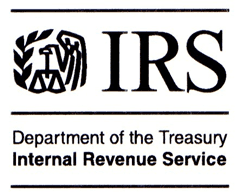
IRS Special Agents represent the Criminal Investigations department of the IRS. If you’ve been contacted by Special Agents from the IRS, it means that the IRS may believe that you have committed a tax crime and are conducting a criminal investigation about you and/or your business. The IRS Special Agents are the individuals who will determine whether your case should be referred for criminal prosecution.
WHAT SHOULD YOU DO IF AN IRS SPECIAL AGENT KNOCKS ON YOUR DOOR?
While being as polite as possible, take their business cards, tell them that you’ll pass their contact information on to your attorney, thank them and then close the door. Under no circumstances should you answer any questions, and you shouldn’t ask any, either.
WHAT IS AN IRS SPECIAL AGENT?
An IRS Special Agent is a Federal Law Enforcement Officer, authorized to conduct CRIMINAL investigations into Tax Evasion, Tax Fraud, Money Laundering, and a whole lot more. IRS Special Agents carry firearms, make arrests, conduct search warrants, issue subpoenas, and seize assets for forfeiture.
IRS Special Agents work for the Criminal Investigation Division of the Internal Revenue Service. They investigate tax related crimes, which could land someone in Federal prison. If you are contacted by IRS Special Agents, it means they may believe that you have committed a tax crime. And they look into everything related to your income, including your family and your business.
IRS Special Agents have a lot of power. They determine whether your case gets referred to the US Attorney for prosecution in Federal Criminal Court. Do not talk to them, let your attorney do the talking.
HOW WILL AN IRS SPECIAL AGENT MAKE FIRST CONTACT WITH ME?
IRS Special Agents are highly trained at the Federal Law Enforcement Center, where they learn investigative techniques, including how to conduct a coercive interview. They are trained to seize upon every opportunity to interview you when you least expect it – to catch you by surprise when your guard is down. So, your initial contact with an IRS Special Agent will likely be unexpected – when they knock on your front door to catch you when you are unprepared.
IRS Special Agents usually travel in pairs. One will ask you questions while the other takes notes. And you can bet they already know the answers to the questions they are asking you. The one asking you questions will attempt to build a rapport with you – to entice you to answer their questions. Don’t be drawn into a conversation, no matter how nice they are.
You must remember that the IRS Special Agents already believe that you have committed a tax crime. They try to catch you by surprise so that you’ll start making incriminating statements before you realize that you have legal rights that are worth fighting for- like the right to remain silent.
WILL THE IRS SPECIAL AGENTS READ ME MY MIRANDA RIGHTS?
They should. In fact they are instructed to do so in the Internal Revenue Manual. And if they don’t, the courts have thrown out their cases in the past. Some courts have concluded that being contacted by IRS Special Agents from the Criminal Investigation Division is so utterly coercive – just on its face – that without those Miranda warnings, any statement is deemed to be taken without voluntary consent.
Miranda Rights only apply when someone is being questioned by law enforcement in a custodial atmosphere. If a IRS Special Agents knock on my front door, I’m not in custody and I can simply shut the door and tell them to call my lawyer. Why should Miranda apply then?
Think about it. Two IRS Special Agents show up unannounced, flash their gold badges, and ask if you would answer some questions regarding a criminal investigation into your income tax returns. Scary, right? You bet it is. That is why the Internal Revenue Manual requires up front that IRS Special Agents read you your Miranda Rights in certain types of investigations, even though you are not in custody (under arrest).
But it isn’t that simple. Sometimes IRS Special Agents work alongside other Federal Agents in a task force investigation under the secrecy of the Grand Jury. In those instances, in a non-custodial interview, the agents do not necessarily need to read Miranda Rights.
Whether it’s a pair of IRS Special Agents knocking on your door, or a squad of Special Agents armed with search warrants to search the premises of your home or business, you have not yet been charged with a crime or formally detained (in custody). However they appear, do not talk to them. Contact an attorney right away.
WHAT IF I KNOW THAT I AM INNOCENT? SHOULD I SPEAK TO THE IRS SPECIAL AGENTS THEN?
No, you should not speak directly with IRS Special Agents. While you may believe that you are innocent of any crime, your statements and actions may actually constitute another crime that you were unaware of. And they could recommend that you be prosecuted for this new and different crime. And if you become nervous, you might say something that you don’t mean or give inconsistent answers, which IRS Special Agents will view as if you are trying to hide something. And that might cause you to be charged with “Lying to a Federal Law Enforcement Officer,” a felony.
Remember, IRS Special Agents are visiting you for only one reason: they believe you may be guilty of a tax crime. They will do everything they can to try to obtain information from you to support their allegations. Do not talk to them – let your experienced tax attorney speak for you on your behalf.
This article is not intended to provide legal advice. For legal advice on any of the information in this post, please contact one of our attorneys. Browse our attorney profiles or contact us by phone: (805) 749-5670.
We are using cookies to give you the best experience on our website.
You can find out more about which cookies we are using or switch them off in settings.
This website uses cookies so that we can provide you with the best user experience possible. Cookie information is stored in your browser and performs functions such as recognising you when you return to our website and helping our team to understand which sections of the website you find most interesting and useful.

